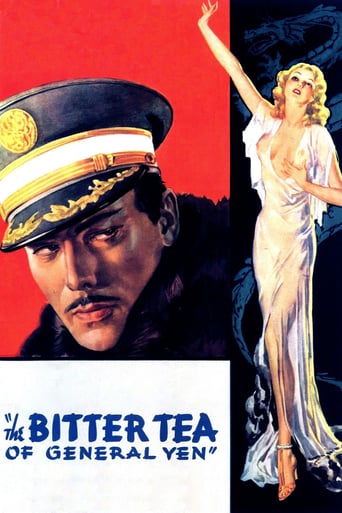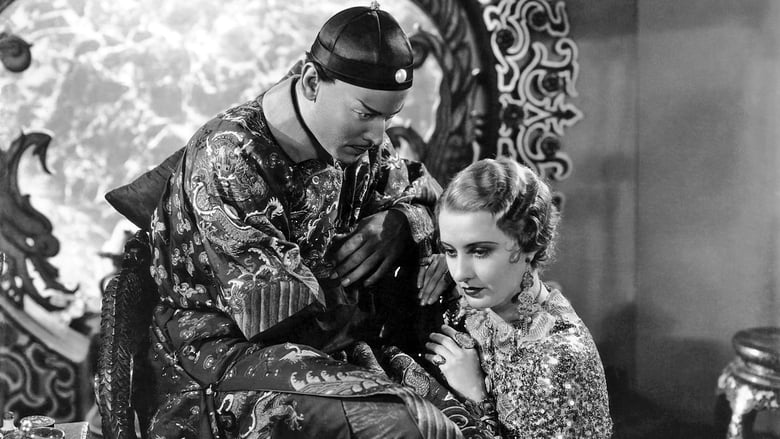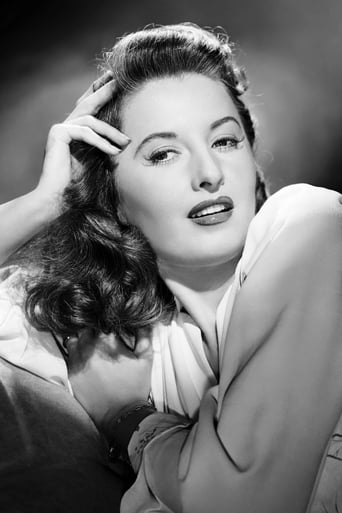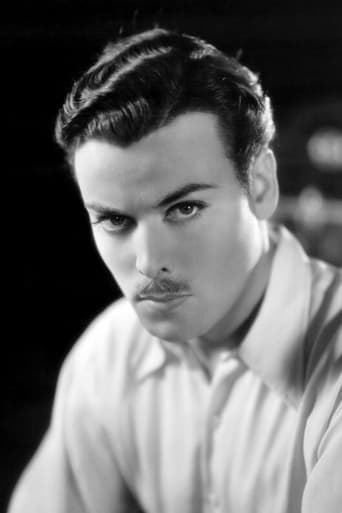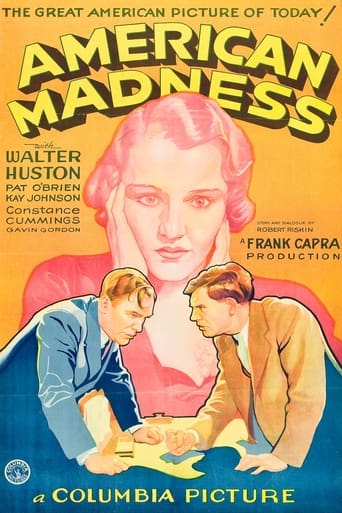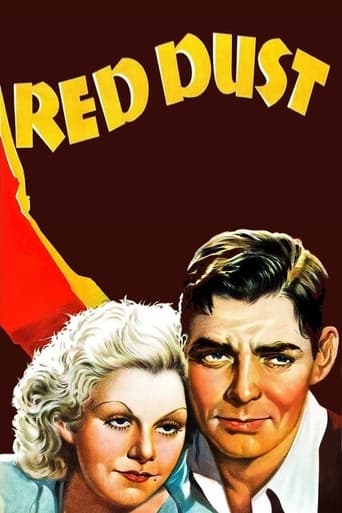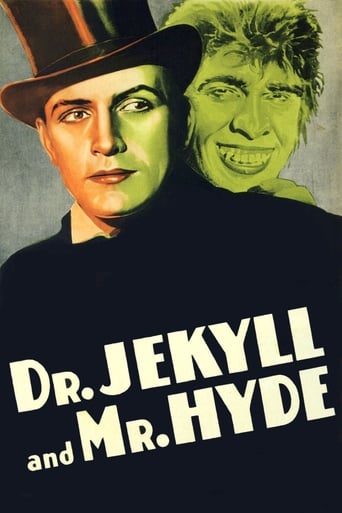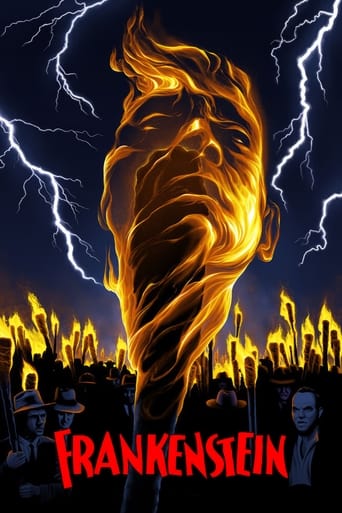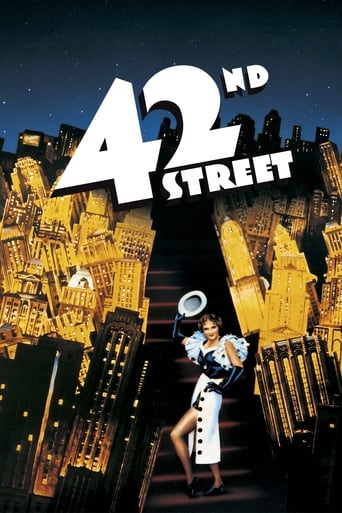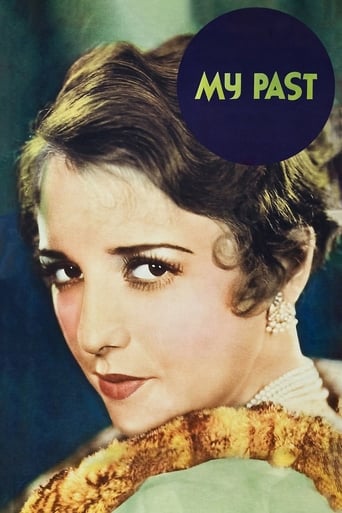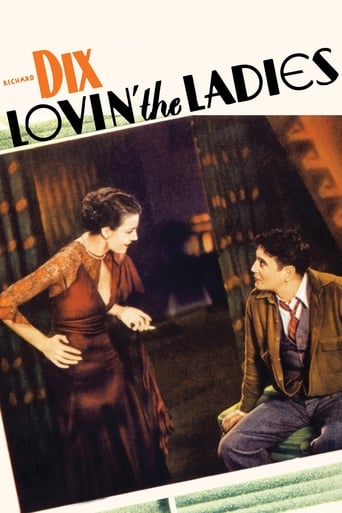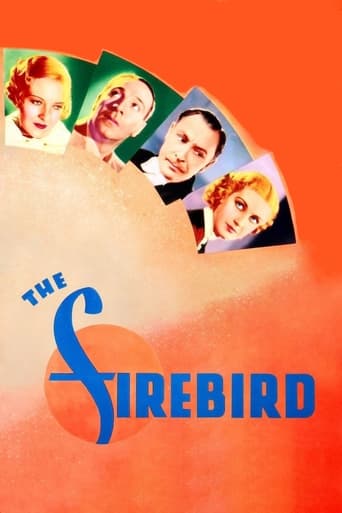The Bitter Tea of General Yen (1933)
An American missionary is gradually seduced by a courtly warlord holding her in Shanghai.
Watch Trailer
Cast


Similar titles
Reviews
Wow! Such a good movie.
How sad is this?
Good movie, but best of all time? Hardly . . .
Clever, believable, and super fun to watch. It totally has replay value.
I knew going into this film what to expect just by the basic plot outline. What I didn't expect was how well made this film was.Normally with these old 30's dramas you get decent actors and a decent storyline with an average script. The actors have to keep up the paces to make the film work. This is not the case with this film. I was really surprised at the quality of every aspect of this film.The star of this film is not Barbara Stanwyck. Although most would think by her name alone it would be but she's very ordinary in this one. A lot of her 30's stuff is "Joe basic average". The star of this is Nils Asther. He is an absolute chameleon in this. The make-up he has is so convincing you'll look twice. Even though you can hear his Swedish accent come through you can still see how good his attempt at Chinese was. This film was his absolute pinnacle.The action scenes are done very very well. The shootout close to the end and the sequence early on in the orphanage are really very convincing. I'm just amazed at how well this film holds up even in this day and time.This film is known for one thing and one thing only and that's the interracial overtones it has. I'm here to tell you folks, it's so mild it didn't even come into play for my viewing. I mean it's there but the story really is about the downfall of a ruthless Chinese General. He's blindsided by the American girl he keeps hostage and his attempts to woo her.The ending though reminds me of a very similar film from around the same year...The Barbarian. Both have a very ridiculous ending. It doesn't fit with how Stanwyck played the character. I guess that's what the author of the book intended. Always confuses me how here and there, back in the day, at how Hollywood throws these curve ball films in to make America think about interracial issues. What's makes me laugh is does anyone remember back then any stars actually doing what they portray? There's no way they thought this would be a financial success back then with this subject matter.All this being said, this is a really fine effort. Just a very well made and engrossing film.
A year before his major breakthrough film It Happened One Night director Frank Capra made this romantic tragedy that is filled with provocative topic and outstanding set design sensually photographed by master cinematographer Joseph Walker.Megan Davis (Barbara Stanwyck) arrives in China in the middle of a civil war to marry her missionary husband Dr. Robert Strike and then work alongside him. Before they even marry they are separated during an evacuation and Davis finds herself in the hands of warlord General Yen (Nils Asther) . Yen at first mocks Davis but soon finds himself falling heavily for her.The Bitter Tea of General Yen is filled with characters making bad decisions. Davis and Strike are nearly killed due to their naive condescension and trusting Megan is betrayed twice by her maid with huge consequence. General Yen cold and cruel as he may be also succumbs in his case to incurable romanticism. Only Jones (Walter Connolly) the arms dealer is grounded in reality to the dire situation that faces them.Director Capra ably provides scenes of both chaos ( refugee evacuations, night battles ) and tranquility in the idyllic setting of Yen's compound palace where the General sets about seducing Megan with delicate charm while firing squads outside in the courtyard dispatch his enemy. Capra also finds time to get some satiric shots in at Western superiority and hypocrisy but it is the sexual tension between the leads that is at the center of Yen.Megan's ambiguity is excellently conveyed by Stanwyck's actions and immature responses to the different world she finds herself. She's totally out of her element and her western ways are constantly checkmated by Yen. As Yen, Nils Asther cuts a dashing figure as the highly cultured warlord. He's cruel by occupation but sensitive in nature, especially around women as Jones informs us and it ultimately brings about his ruin. His scenes with Stanwyck resonate with cultural clash and erotic implication and Capra ups the ante even further with a Freudian dream that Megan has. Capra went on to make more famous and bigger films but he would never approach the eroticism or cynicism that this provocative thirties work offered causing me to wonder if success took some of the edge out of him..
I would describe this film as sumptuous, erotic, sophisticated and emotionally complex. It is a 1933 Frank Capra film, about a love affair between a Christian missionary's fiancée and an educated Chinese warlord, a film which broke the taboo against depicting inter-racial relationships just prior to the introduction of the reactionary Hayes code in Hollywood.As a work of film craftsmanship and artistry it is just breath-taking - starting with the initial scenes of chaos in the midst of a bombing raid where Megan Davis (Barbara Stanwyk) makes her first impression on General Yen through a small act of kindness. The crowd scenes are masterfully directed and the photography positively glows. Later on, watch the superimposition of images as they gradually hover around Megan's face, suggesting a dream state. Then, in the train compartment, the three main characters are assembled - Megan, General Yen, and Yen's concubine, Mah-Li. Without a word being spoken the camera prowls among the three characters catching every little nuance of the eyes and body language as they react to one another. It is very intimate - almost uncomfortably so - and very dramatic. There is a dream sequence of Megan's later in the film, too. I will not spoil it for you, but it is provocative and jaw-dropping, and it must have caused gasps in the audience back in 1933.The film is somewhat a psychological dance among the main characters. None of them is quite who they seem to be or even who they think they are. As General Yen's fortunes decline Megan's dearly held Christian beliefs seem overwhelmed by a tragic set of events that she has no control over but which she is inexorably a part of. Even when she is compelled to bargain for the Christian ideal of mercy, Yen is stung, fearing he is being "taken" by a missionary type, while loving said missionary type so passionately. Nils Asther's performance as Yen is, at this point, heartbreaking.It has been commented that several Chinese in the Christian household at the beginning of the film appear in shadow and are depicted as sinister. That is not my take on it at all. If anything, this film is anti-racist .Those Chinese servants in shadows are depicted as being practically invisible to the whites at the party - people you snap your fingers at if you want an hors-d'oeuvre or the piano played. David Lean did something similar in "A Passage to India" decades later. Toshia Mori, as Mah-Li, plays a fully-developed character, and adds considerable weight to the authenticity of the movie. Oh, and Walter Connolly, as the resident white scumbag, fatuous as he may sound, delivers a lot of wisdom and expert postulating, particularly at the end. He's a one-man Greek chorus.
Definitely the most "Un-Capra" film that the director ever made. It's a shame he never did anything near as good or interesting after, because "Yen" is pretty amazing. A young Barbara Stanwyck is the fiancé of an American missionary who is rescued from Chinese Civil War violence by the notorious warlord General Yen (Nils Asther, extraordinary). He takes her back to his huge palace, and soon Stanwyck realizes he does not wish for her ever to leave. She finds herself being drawn to the mysterious Yen against her will, a man who is both shocking in his cold cruelness (ordering the execution of men in his palace grounds)and yet fascinating in his cultured, seductive manner. The film is best known for being a remarkable Pre-code attempt at showing a "forbidden" romance between an Eastern man and a Western woman, but it has many other subtle layers too. Yen seems to be playing power games with Megan, encounters that become increasingly charged as the film progresses. Megan's ingrained Christian attitudes and her Western beliefs are constantly challenged by Yen. The most talked-about scene in the film is, of course, the remarkable dream sequence where Megan's sub-conscious attraction to Yen is obvious. It's an incredibly sensual scene, and film. The atmosphere created by Capra and photographer Joseph Walker is astonishing, and frame after frame is beautiful. Nils Asther's performance is remarkable, and he inhabits his role so completely that we almost forget he is a Swede merely playing at being Chinese.

